The 2025 Tribeca Film Festival is underway, running through June 15th. This year’s crop of films is much more impressive than in recent years and boast a few selections that could be in the awards conversation later this year—as well as quite a few impressive performances. For tickets visit: TribecaFilm.com
The Contending has sampled over two dozen features and recommend the following.
Note: Part Two of this analysis will publish on Wednesday morning to respect set review embargos.
Westhampton
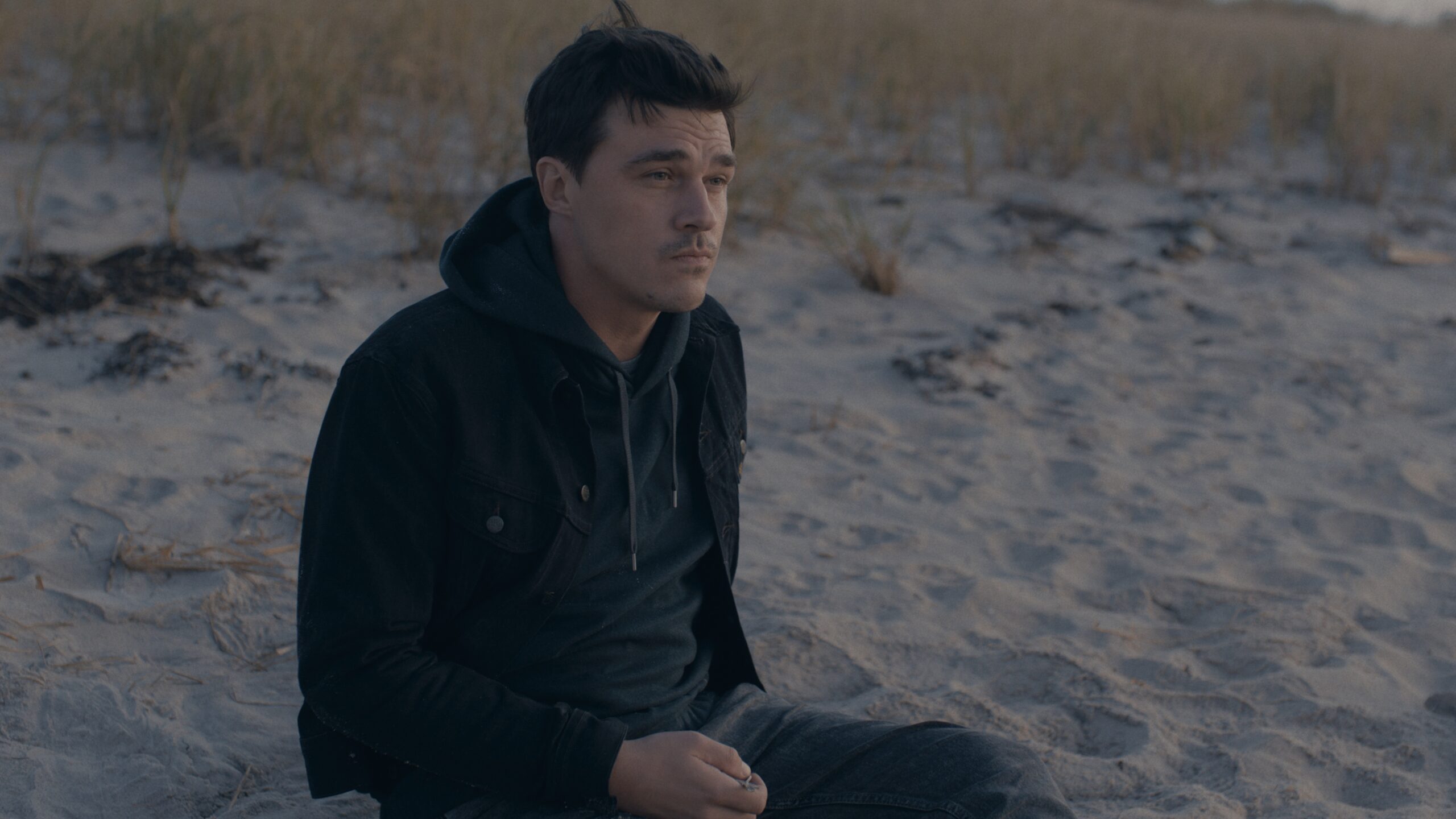
Finn Wittrock leads a stellar cast in Christian Nilsson’s atmospheric, meditative yet deeply penetrating feature Westhampton.
Wittrock delivers a career best performance as Tom Bell, a guilt-ridden mess of a filmmaker who reluctantly returns to his hometown in Long Island where the screening of his semi-autobiographical film is received rather coldly. In his youth, Bell was involved in a tragic car crash and the townsfolk still blame him and treat him like a pariah. His sister is demanding he pack up his things from their childhood home so she can sell it. And Dickie (Jake Weary), a local cop and former bestie, is out for blood. In addition, he runs into various people from his past including Fitz (RJ Mitte), Dickie’s brother. I’ve deliberately tried to leave major plot elements vague so as not to spoil how the film unfolds.
Nilsson intercuts Bell’s current story with scenes from his black-and-white, 16mm fictionalized film so, in the end, one gets a sense of the true story but also the story Bell needed to tell to find some kind of catharsis…redemption.
In recent years, Wittrock has proven to be a superlative actor in all mediums. In Westhampton, as his deeply-damaged character desperately searches, regresses, spirals and then pulls himself out of his own ass, there’s a tremendous authenticity to his work matched by the distinctly real small-town world Nilsson creates.
Weary is a revelation as a man who refuses to forgive or forget. Dickie could have easily been a one-dimensional boob (how many small town dunderclods end up cops?) but Weary slips in just the right amount of nuance so we know that while he’s still angry, it stems from deep pain.
The great Tovah Feldshuh shines in a cameo role that should have been expanded.
I was really taken with this film. It sucked me in immediately and never let go, hitting all the right notes, and leaving me thinking about my own youth and the damaged people I encountered, who made some terrible mistakes and were searching for their own kind of absolution. How fortunate that cinema can spark such reflection when it’s done well. And that catharsis can be achieved, if only on the big screen.
Our Hero, Balthazar

I can only imagine that Oscar Boyson’s satirically stinging, bold and impressive feature debut, Our Hero, Balthazar, will be quite divisive upon its release.
This super dark and nasty comedy, written by Boyson and Camilleri, cleverly comments on class and how the rich can and do get away with murder while the lower classes are often used and discarded—oh, and always assumed to be up to no good.
The plot initially centers on an entitled brat of an NYC teen, Balthazar “Balthy” Malone (Jaeden Martell), who posts fake videos pleading for strict gun laws in order to impress the girl he’s crushing on. His mother (Jennifer Ehle, always amazing) coddles him—when she’s around. And he has a life coach (Noah Centineo) who is uber aware of his meal ticket. When an online troll begins to ridicule his vids, Balthy becomes certain that the agitator is on the cusp of committing a mass shooting, so he travels to Texas to confront him and hopefully get all the glory in talking him down.
The shooter-wannabe turns out to be Solomon (Asa Butterfield), an unpredictable, rage-filled, gun-toting good ‘ol boy who is desperate to impress his father (Chris Bauer). Balthy and Solomon, two divergent young men, find themselves semi-bonding—there’s even a homoerotic element to their relationship—but which boy is the real threat to society?
Martell is excellent as a wealthy young sociopath. Butterfield is an unrecognizable revelation as Solomon, mesmerizing to watch.
Our Hero, Balthazar is a scathing, audacious look at our wayward and social media indoctrinated youth, their selfish and manipulative parents and America’s lunatic gun culture. The film will make you laugh hysterically one minute and disturb the shit out of you the next. My favorite kind of story.
Birthright
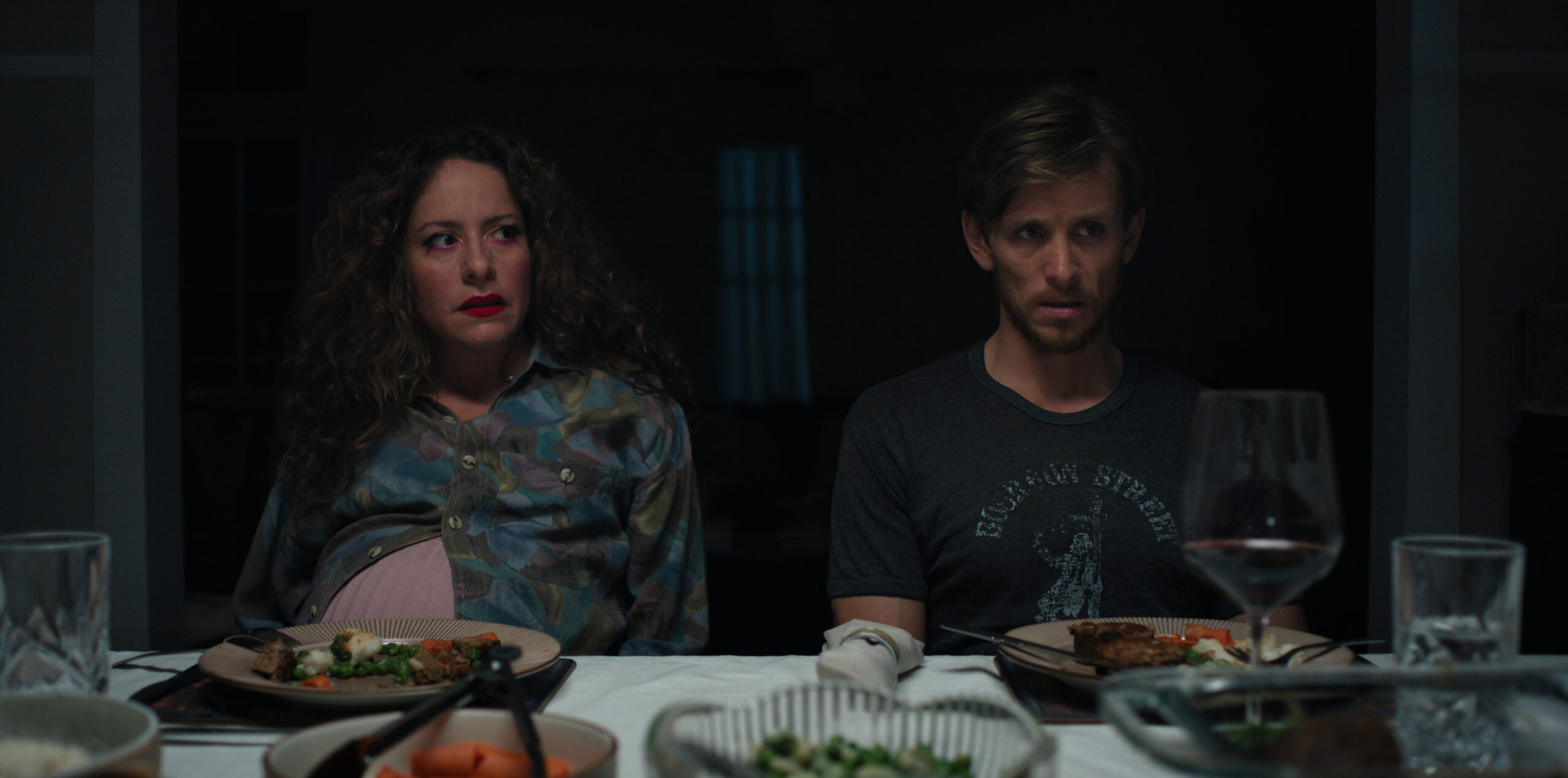
Birthright proved to be a bizarre, unexpected treat.
Cory (Travis Jeffery) and his uber-pregnant wife, Jasmine (Maria Angelico) have just lost their home and must ask Cory’s well-to-do parents, Richard (Michael Hurst) and Lyn (Linda Cropper), if they can crash a few days…which becomes a few weeks since Cory has lost his job and they’ve lost their shot at a new home. To say his parents are reluctant to have them stay is an understatement. They’re downright hostile, which forces Cory and Jasmine to dig their heels even deeper. As the power plays escalate, a tremendous sense of foreboding builds to a disturbing, disquieting, yet oddly satisfying conclusion.
The dynamics between the characters here is fascinating with behavior ranging from the strange to the lunatic. Cory’s parents are boomers who worked hard to get what they have and are immensely disappointed in their son (and, by proxy, his wife) for not being able to do the same. Richard’s expectations feel ridiculous. Lyn doesn’t seem to care about anyone but Richard. Yet, we can empathize with their wanting to enjoy their twilight years without their lives being completely upended.
Australian writer-director Zoe Pepper has created an original, startling and anxiety-inducing debut feature— a true horror film, social satire and dark comedy look at familial dysfunction. She basically takes one setting and four actors and creates a cinematic wonder of genre-blends and tonal shifts that work magnificently.
The actors are all to be commended but it’s Jeffery’s progressively unhinged, off-the-rails performance that is most riveting to watch. I found myself vacillating when it came to character sympathies, but I was always rooting for him, because I always believed that he was coming from a place of sincerity and truth. Jeffery has been working in film and TV for over a decade and had a featured role in Kingdom of the Planet of the Apes. This performances should land him more meaty leading roles.
Inside
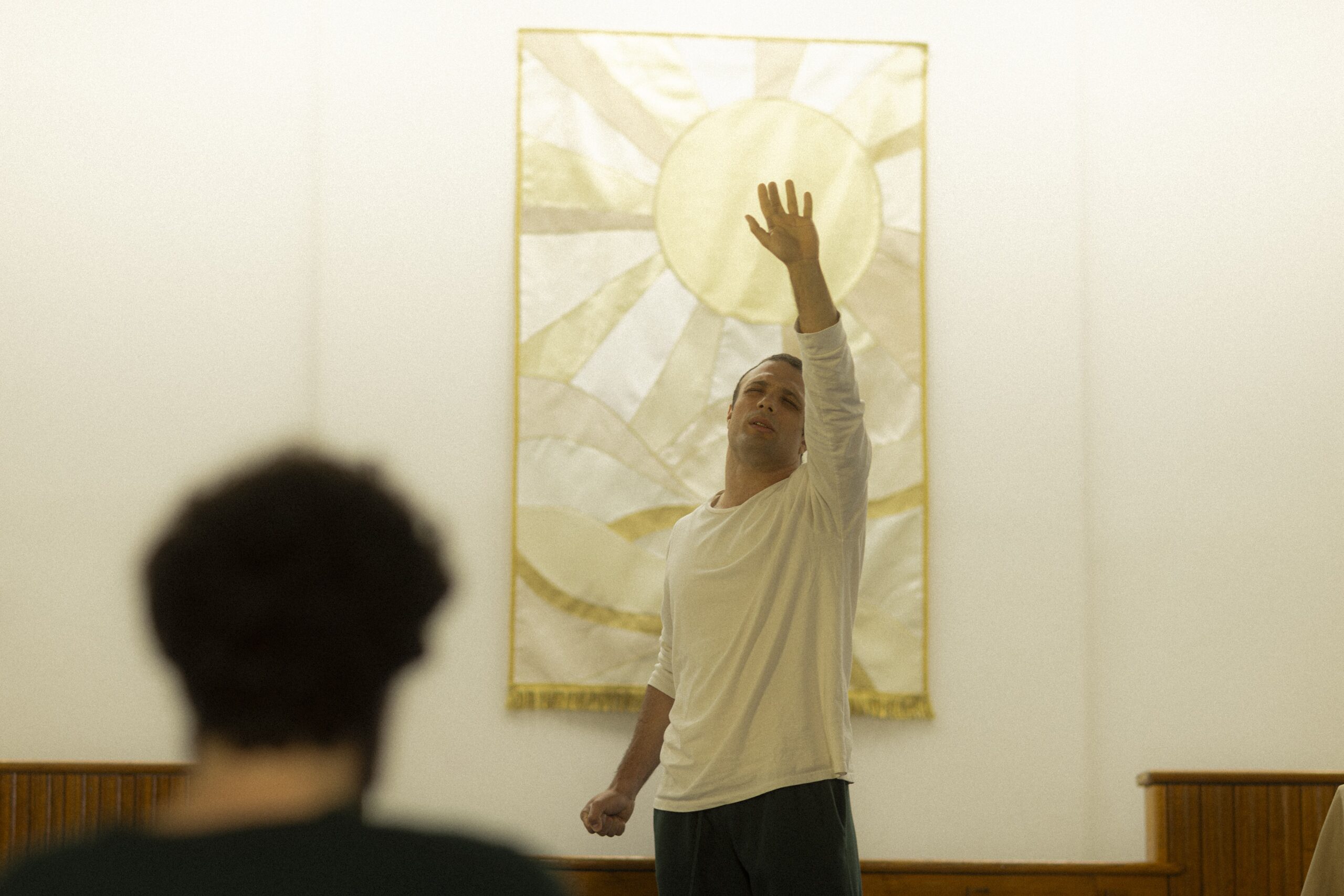
Making its North American premiere, Australian filmmaker Charles Williams’ intense, ferocious first-feature Inside immediately catapults him onto a list of directors to watch.
Prison films tend to be either unrelentingly grim or unbelievably uplifting. Williams, who spent four years researching Australian prisons, finds that fine line between truth and hope. He’s much more interested in empathy and authenticity.

Guy Pearce, who should have won the Oscar for his searing supporting work in The Brutalist last year, offers a weary but determined protagonist in Warren Murfett, a long-imprisoned hit-and-run driver who becomes an apprehensive mentor to newly incarcerated Mel Blight (newcomer Vincent Miller in an impressive feature film debut). Mel has been placed in a cell with a most hated child rapist and murderer Mark Shepherd (an astonishing Cosmo Jarvis), who has now found God. Murfett is hoping to win points towards parole so he can see his estranged son (Toby Wallace, making the most of a one-scene turn). When a hit is put out on the life of Shepherd, Murfett sees an opportunity to get himself out of debt by using Blight, who has already decided Shepherd should die. The film then careens (in the best way) towards its electrifying conclusion.
The film poses important questions about past trauma and horrible familial environs that shape people and whether rehabilitation is possible for certain criminals. But instead of delivering a polemic or showing us some kind of forced redemption, Inside shines a light on the humanity of each of the central figures, even Shepherd. In a shocking and graphic moment, we see just how much he’s punished himself.
Inside is a riveting, visceral and potent work with a star-making performance by Miller and a seriously Oscar-worthy turn by Jarvis. My one minor complaint is that I couldn’t always understand his dialogue. But once it streams, I can’t wait to rewatch it with subtitles.
A Second Life

I was completely captivated by Laurent Slama’s first feature, A Second Life, from the deliberately disjointed filmmaking style to the refreshingly unpredictable narrative shifts. The script, by Slama and Maxime Montagne, is quite clever and never feels contrived.
Set during last year’s Paris Olympics, the narrative focuses on Elisabeth (Agathe Rouselle) a deeply depressed young woman who goes through the motions of her anxiety-ridden job of showing tourists their newly rented apartments. Suffice to say, she’s not often treated very well. That is, until she meets an unconventional young man named Elijah (Alex Lawther, spot on strange) in town for the games. He frustrates the crap out of her at first with his overly friendly nature, but she soon warms to him and his two friends (Jonas Bachan and Suzy Bemba) and finds herself actually enjoying the City of Light and making a few actual connections.
Elisabeth wears a hearing aid and Slama uses her hearing disorder to permit the viewer to understand her disability and how the noises of the world can truly vex someone with a hearing problem.
Rouselle, best known for her shattering performance in Julia Ducournau’s Titane, could be the love child of Vicky Krieps and Phoebe Waller Bridge. Her performance here is spellbinding. She manages to take a potentially super-gloomy character and allow us to truly empathize with her as she slowly opens up to the possibility of allowing joy into her life. It’s glorious to watch!
Sovereign

Writer-director Christian Swegal’s engrossing thriller Sovereign is inspired by true events which makes the predictability and heavy-handedness of the story not just forgivable but, in many ways, essential.
Jerry Kane (Nick Offerman) is an unemployed single father who subscribes to the (real-life) extremist sovereign citizens movement which is basically anti-government and eschews the usual interpretations of laws. These activists think they’re separate or “sovereign” from laws, despite the fact that they live in the U.S. Jerry has a 15-year-old son, Joe (Jacob Tremblay), who he homeschools and has indoctrinated into the movement. They travel the country delivering seminars, but Joe starts to question dad’s warped worldview.
There is a simultaneous plot involving a Police Chief (Dennis Quaid) and his son (Thomas Mann), and their complicated relationship where dad is always pushing his boy, never stopping to appreciate him. You can anticipate these two stories colliding and, when they do, it’s devastating.
This is Swegal’s first feature and it’s a strong, urgent debut. The film quite a bit to say about the damage fathers do to their sons because of screwed up societal notions of masculinity. It also searingly probes the dangers of extreme ideology.
The MVP in this terrific cast is Tremblay. This incredible thesp is no longer the little boy from Room. His Joe is riddled with conflict, but Tremblay never overplays his struggle. It’s a performance that should be remembered during awards season.
Sovereign might have benefitted from a more nuanced portrait of Jerry, but, alas, there are many pig-headed, stubborn people in the world.
Re-Creation
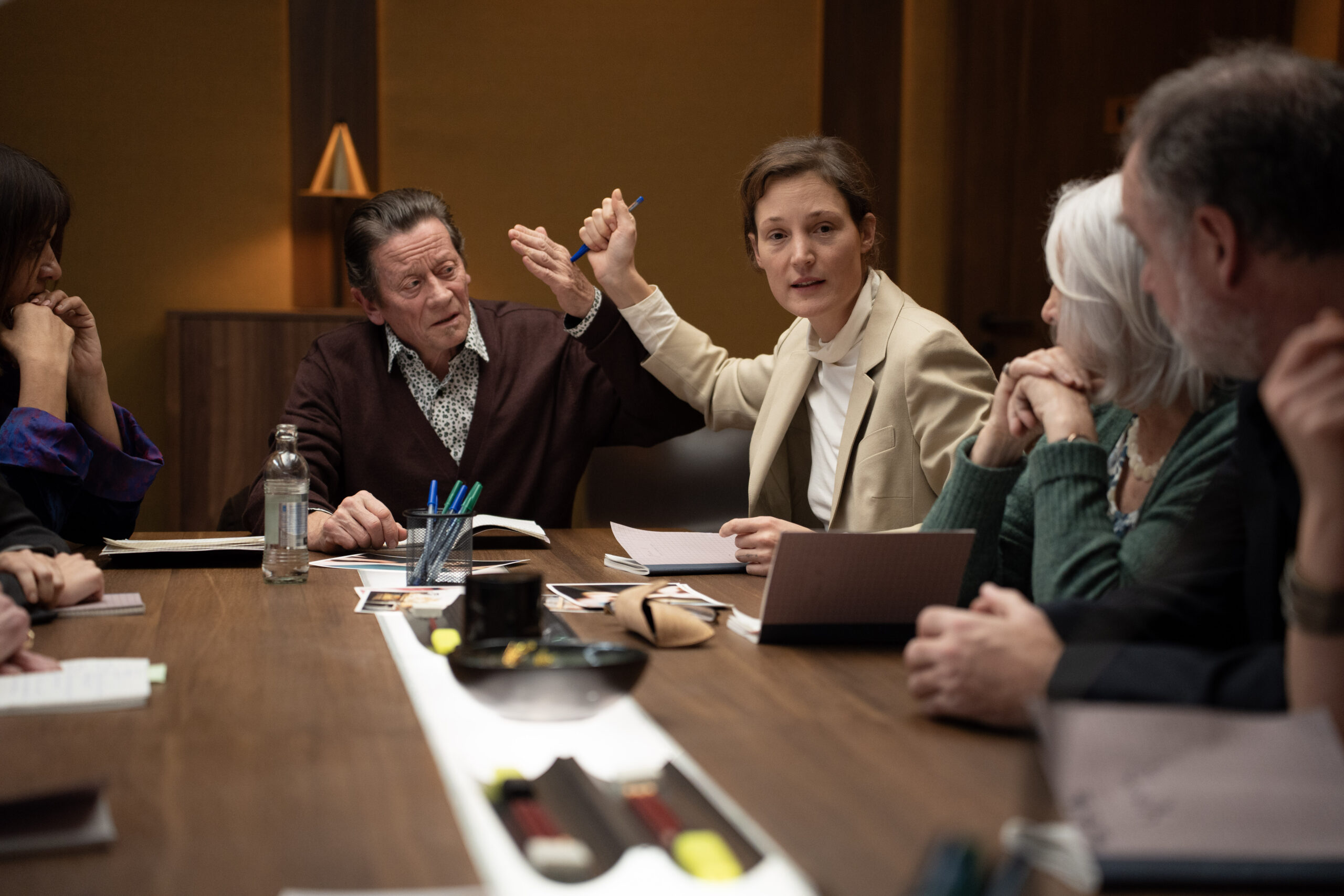
In 1996, French filmmaker and TV producer Sophie Toscan Du Plantier was murdered at her West Cork home in Ireland. A British journalist, Ian Bailey, was investigated for the crime by Irish police, but never charged. Bailey was then tried and convicted, in absentia, by the French government, yet Ireland refused to extradite him. Re-Creation is a fiction-reality hybrid that wonders what the trial in Ireland would have been like had the Irish power-that-be actually tried Bailey.
Six-time Oscar nominee Jim Sheridan (My Left Foot, In the Name of the Father, In America) along with writer David Merriman, team up to co-write and direct this fascinating, moving film that asks timely and crucial questions about journalistic and authoritarian integrity and ethics. Can we believe much of anything reported in the media anymore? Can we ever really trust the police? Do facts still matter?
Owing a great debt to Sidney Lumet’s seminal 1957 masterwork, 12 Angry Men (adapted by Reginald Rose from his 1954 teleplay), Re-Creation is a taut, claustrophobic tale of a jury’s seemingly impossible attempt to get to some idea of the truth. The terrific ensemble cast is led by Sheridan himself and boasts especially outstanding work by Vicky Krieps and John Connors.
Lemonade Blessing
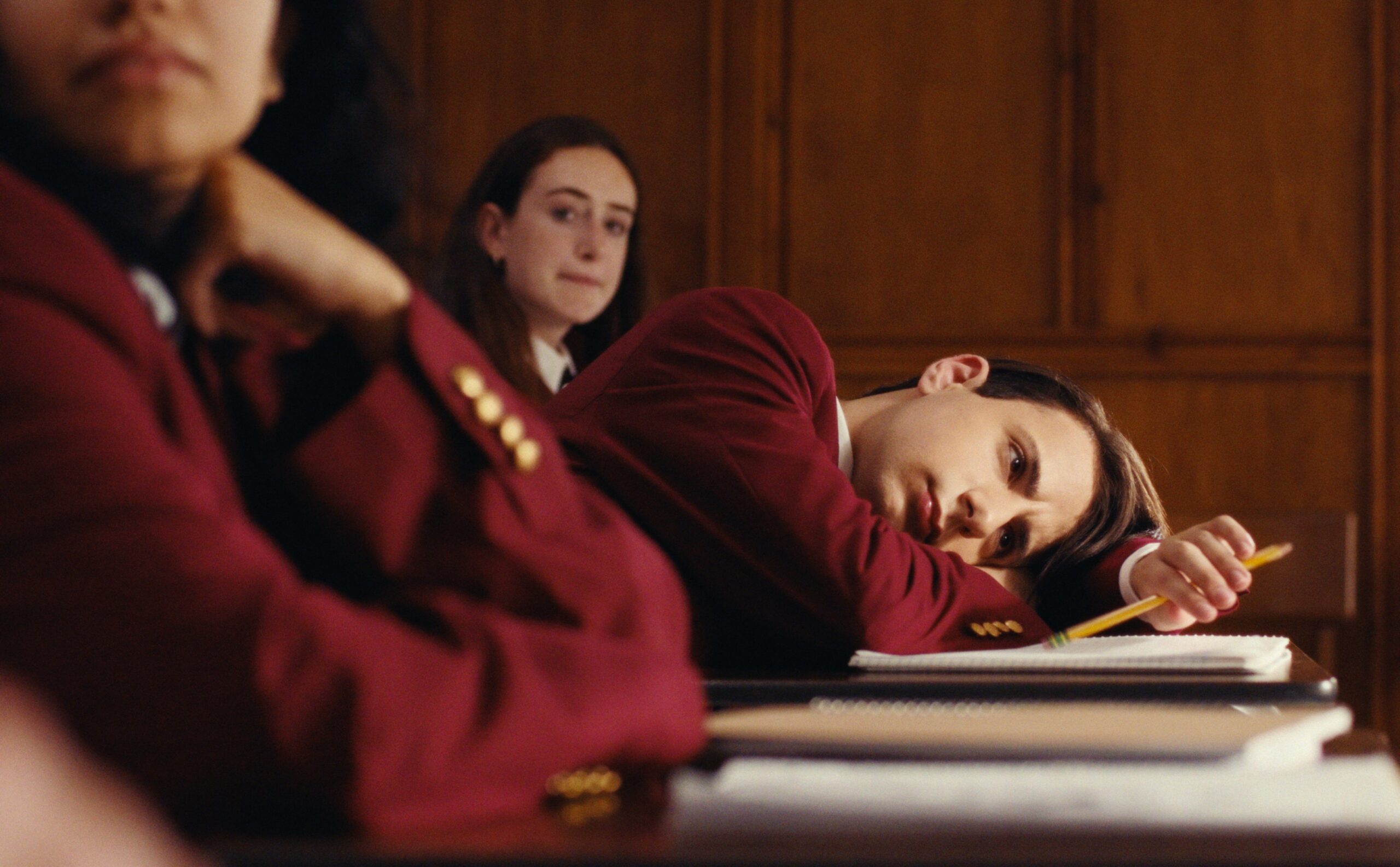
You gotta love a film that delves deeply into the destructive powers of organized religion taken to the extreme. Here, it’s the religious I was raised so I can attest to just how harmful Catholicism can be when the emphasis is recklessly on the negatives and children are taught fear, repression and shame instead of love, compassion and understanding.
John (Jake Ryan, a young Jason Schwartsman doppelgänger) is a teen boy being brought up by his damagingly devout mother Mary (Jeanine Serralles), who has left John’s sinner of a father and is devoted to making sure that John doesn’t do anything that might damn him to hell. But when John begins dating the wayward Lilith (Skye Alyssa Friedman), Mary is not happy.
Lilith rebels against her entire strict religious upbringing and begins to demand that John do some truly crazy and sacrilegious things and, in return, she agrees to certain sexual acts.
Ryan carries the film nicely while Friedman is just the right amount of unhinged. Serralles, so good this past season in the Off-Broadway play, We Had a World, strikes just the right balance of brainwashed fundamentalism and motherly concern.
Written and directed by Chris Merola, Lemonade Blessing is an often-funny, odd but penetrating look at what suppression does to us and how, sometimes, the only way through can also be quite detrimental. Can we ever shake the shame and fear instilled in us during our formative years?
Dragonfly

For the first three quarters of Brit writer-director Paul Andrew Williams’ Dragonfly, the film is an intense gritty drama about Elsie (Brenda Blethyn) a lonely elderly woman, and her troubled but helpful neighbor Colleen (Andrea Riseborough). Of course, every few scenes the ominous score keeps telling us that something sinister is on the horizon. And there are too many extraneous shots of Colleen’s dog who will become central to the thriller plot twist.
Up to that point, the film is a wonderful showcase for two Oscar nominees, who are both stellar. It is also a scalding and heartbreaking look at elder care and how we seem to simply discard people once they reach a certain age as well as an honest portrait of the importance of connection.
But in the last quarter, Dragonfly becomes something else, a shocking turn of events caused by Elsie’s son, shatters everything that came before. I’m still grappling with it. Is it shock for shock’s sake or did Williams want to fully explore the alienation theme and take it to extremes? The denouement will certainly elicit a reaction. I’m just not sure it was entirely necessary. Or that we were fully prepared enough for the tonal shift. But it has stayed with me.
On a String
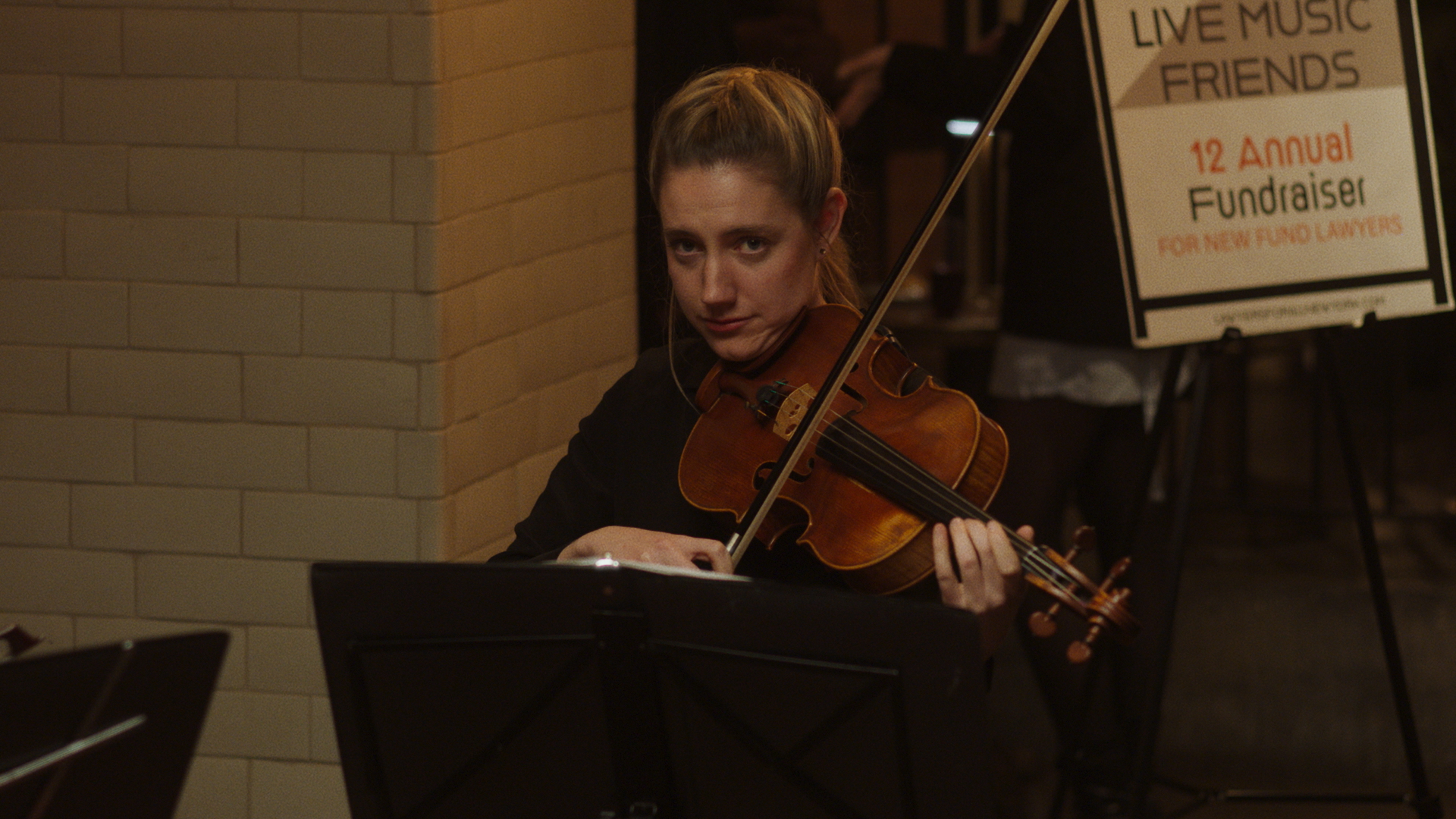
I’m glad i didn’t know that Isabel Hagen, in addition to starring in On a String, wrote, directed and produced it as well. Why? Because I was able to fully appreciate her winning, Greta-Gerwig-esque performance and not wonder about all the many hats she was wearing. She’s a definitely quadruple threat.
Hagen even named the lead character, Isabel, after herself, so I’m surmising the film is at least semi-autobiographical. There’s little plot, really. The film is more a character study of a young Julliard-trained violinist trying to discover who she is and what she wants in NYC. We meet her odd parents and even more peculiar brother, her handsome, selfish on-again-off-again boyfriend (John Kroner) and her sorta bestie who she is always arguing with. Oh, and the married father (Frederick Weller) of the girl she is tutoring, who is definitely taken with Isabel. Every man is fairly toxic and seems to want to do inappropriate things with Isabel. But what does she want?
Hagan writes quirky, often hilarious characters very well and her performance is stellar. I just wish she had gone a bit deeper and, also, given us an ending befitting the fascinating character she created.
Special Mentions to:
Heather Kafka and Justin Arnold’s excellent work in Bryan Pyser’s Leads.
Lillian Carrier and Gretchen Mol, both wonderful, in Lauren Meyering’s Horsegirls.









